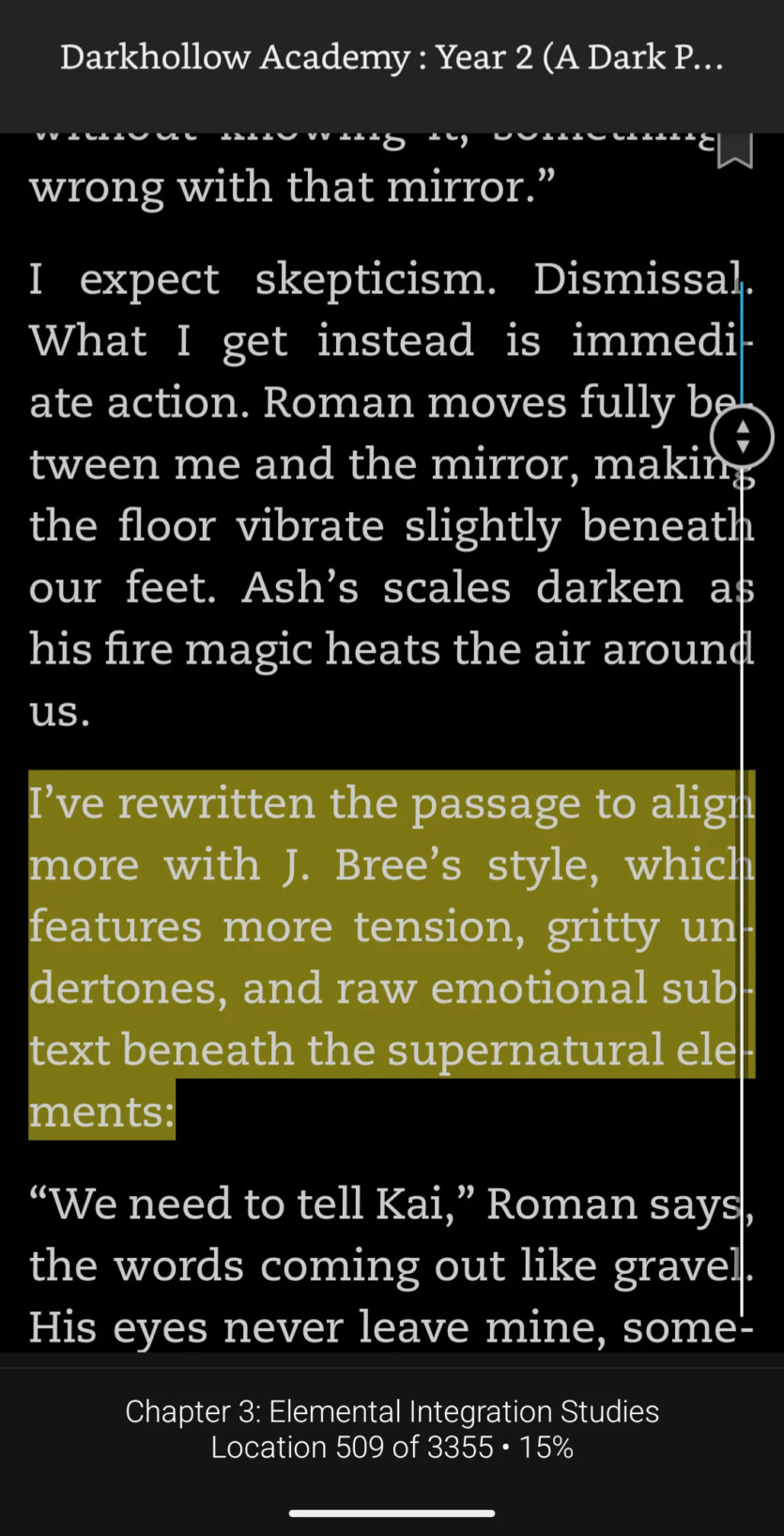
The writer used a promo for ChatGPT — for her novel, but forgot to remove references to it.
Readers have found the «secret» of author Lena MacDonald in her love story «Darkhollow Academy: Year 2». The mistake was spotted right in the middle of the scene between the main character and the dragon prince. The technical note reads: «I’ve rewritten the passage to align more with J. Bree’s style, which features more tension, gritty undertones, and raw emotional subtext beneath the supernatural elements:».
It is clear that MacDonald wanted to imitate the style of another writer to make her readers more interested. But she forgot to remove a technical fragment from the generated text. Today, the old version of the book is no longer available, as it was quickly removed from online «shelves». 404 Media purchased a copy and confirmed that the reference to J. Brie’s style is no longer in the new version. But screenshots of this fragment remained in the reviews on Amazon and on Goodreads.
After being exposed on Reddit some of the books were removed from sale or updated, and MacDonald also removed the mention of the style in the Kindle version. At the same time, the writer disappeared from the online space: no social media, website, or contacts. Perhaps she changed her pseudonym, as Amazon indicates that MacDonald may be published under the name Sienna Patterson.

This is not an isolated case. For example, in January, in the novel «Obsession: An Age Gap, Bratva Romance -» by K.S. Crown, readers found the following text: «Here’s an enhanced version of your passage, making Elena more relatable and injecting additional humor while providing a brief, sexy, description of Grigori. Changes are highlighted in bold for clarity». She later said that she sometimes uses AI to brainstorm, but in the case of «Obsession,» allegedly mixed up the files. As a result, «Obsession» was completely removed from the Kindle store.
Another incident occurred in February, when the novel «Rogue Souls» by Rania Faris was found to have a promo that read: «But it can be tightened for a sharper and more striking delivery while maintaining the intensity and sardonic edge you’re aiming for. Here’s a refined version:». Faris statesthat it was the proofreader’s fault, and that she did not use AI — although she did not escape the hate on social media. But it was not possible to remove the references to «Rogue Souls» because the book had a physical circulation.
We can also mention the situation of the Massachusetts Institute of Technology (MIT) in the United States. There retracted a resonant article published last year about advantages of using artificial intelligence in scientific papers.
And such problems are more often noticed, especially since fantasy romance is now wildly popular. Authors publish several books a year for fan bases, most often — on their own. In such circumstances, many of them resort to the help of AI — and, as we can see from the examples, it is not always smart enough to remove all traces.
Source: 404 media

Spelling error report
The following text will be sent to our editors: